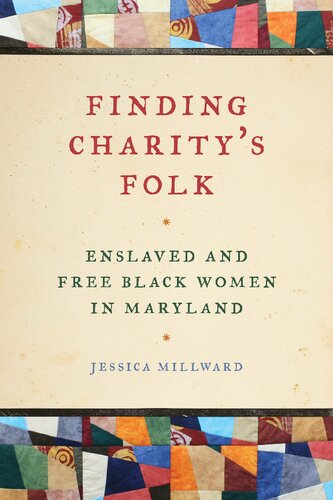

Most ebook files are in PDF format, so you can easily read them using various software such as Foxit Reader or directly on the Google Chrome browser.
Some ebook files are released by publishers in other formats such as .awz, .mobi, .epub, .fb2, etc. You may need to install specific software to read these formats on mobile/PC, such as Calibre.
Please read the tutorial at this link: https://ebookbell.com/faq
We offer FREE conversion to the popular formats you request; however, this may take some time. Therefore, right after payment, please email us, and we will try to provide the service as quickly as possible.
For some exceptional file formats or broken links (if any), please refrain from opening any disputes. Instead, email us first, and we will try to assist within a maximum of 6 hours.
EbookBell Team

5.0
108 reviewsFinding Charity’s Folk highlights the experiences of enslaved Maryland women who negotiated for their own freedom, many of whom have been largely lost to historical records. Based on more than fifteen hundred manumission records and numerous manuscript documents from a diversity of archives, Jessica Millward skillfully brings together African American social and gender history to provide a new means of using biography as a historical genre.
Millward opens with a striking discussion about how researching the life of a single enslaved woman, Charity Folks, transforms our understanding of slavery and freedom in Revolutionary America. For African American women such as Folks, freedom, like enslavement, was tied to a bondwoman’s reproductive capacities. Their offspring were used to perpetuate the slave economy. Finding loopholes in the law meant that enslaved women could give birth to and raise free children. For Millward, Folks demonstrates the fluidity of the boundaries between slavery and freedom, which was due largely to the gendered space occupied by enslaved women. The gendering of freedom influenced notions of liberty, equality, and race in what became the new nation and had profound implications for African American women’s future interactions with the state.